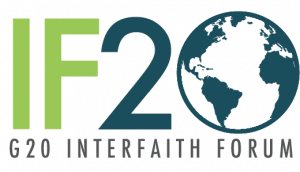‘Religicide’ recognized as a new form of human rights violation
A newly Released Book on "Religicide" sheds light on a newly categorized form of human rights violation.
The fast spread of religion-related violence should alarm us all. Collective action and courage are needed to put a stop to systemic violence against people, planet and the truth. ”
NEW YORK CITY, NEW YORK, UNITED STATES, February 21, 2023 /EINPresswire.com/ -- The Anti-Racism Initiative of the G20 Interfaith Forum (IF20), the world’s leading organization focused on the intersection of faith and policy, is gathering experts on anti-religious violence to discuss the nuances, impact, and history of this spreading problem at a free webinar.— Jerry White, Executive Director, United Religions Initiative (URI)
A central focus of discussion at the webinar will be a newly released book written by two of the panelists, which sheds light on “religicide” as a newly categorized form of human rights violation.
Dr. Georgette F. Bennett, one of the book’s co-authors, explained why this type of attack has gone without official recognition up to this point:
“Religicide is a form of human rights violation that has gone unrecognized because it slips between the gaps in international law,” Bennett said. “Religicide goes beyond atrocities recognized by existing laws – war crimes, crimes against humanity, genocide and ethnic cleansing – and adds ecocide, factocide, and cultural destruction.”
According to Jerry White, the book’s other author, religicide is quickly spreading today.
“The fast spread of religion-related violence should alarm us all,” White said. “We used to say never again after the Holocaust, and now religicide is happening again and again. Collective action and courage are needed to put a stop to systemic violence against people, planet and the truth.”
Sister Makrina Finlay and Karen Volker, two of the other panelists, agreed that merely defining and recognizing religicide as a problem has the power to help faith communities prevent violence and process trauma:
“The concept of ‘religicide’ has helped me in my practical work with Yazidis in Germany and Iraq,” Finlay said. “Defining religicide enables Yazidis themselves and those who support them to respond appropriately to the violence committed against them as individuals and as a community.”
“Faith actors can play an important role in establishing and changing the norms related to condoning or objecting to violence,” Volker said. “Utilizing the concept of ‘violence interruption,’ they can use their influence to interrupt and stop violence.”
The virtual meeting looking into religicide will take place on Feb 23, 2023 at 2:00 p.m. EST.
Register for the free webinar at https://us02web.zoom.us/webinar/register/WN_zmj11HHWT0ueZw4cCKspzQ
Speakers will include:
• Dr. Georgette F. Bennett – Founder, Tanenbaum Center for Interreligious Understanding and Multifaith Alliance for Syrian Refugees; Author of RELIGICIDE: Confronting the Roots of Anti-Religious Violence
• Jerry White – Executive Director, United Religions Initiative; Author of RELIGICIDE: Confronting the Roots of Anti-Religious Violence
• Sister Makrina Finlay – Benedictine Nun, St. Scholastika Abbey, Germany; Historian, theologian, Yazidi researcher, and humanitarian
• Karen Volker – Director of Partnership and Violence Prevention, United Religions Initiative
• Audrey E. Kitagawa – Founder/President, International Academy for Multicultural Cooperation; Chair, G20 Interfaith Forum Anti-Racism Initiative
About the G20 Process
The Group of Twenty, or G20, is the premier forum for international economic cooperation,
bringing together the leaders of Earth’s most prosperous economies. Collectively, G20
members represent around 80 percent of the world’s economic output, two-thirds of the
global population and three-quarters of international trade. Throughout the year,
representatives from G20 countries gather to discuss financial and socioeconomic issues as
well as broader humanitarian issues targeted by the UN’s Sustainable Development Goals.
About the G20 Interfaith Forum
The G20 Interfaith Forum seeks global solutions by collaborating with religious thought
leaders and political representatives to help shape the overall G20 agenda. It draws on the
vital roles that religious institutions and beliefs play in world affairs, reflecting a rich
diversity of institutions, ideas, and values. Through its extensive network of networks, it
helps prioritize key global policy goals and point toward practical means of implementation
at every level of society.
For more information, please visit www.g20interfaith.org.
Marianna Richardson
G20 Interfaith Forum
+1 801-692-1442
email us here
Visit us on social media:
Facebook
Twitter
LinkedIn

